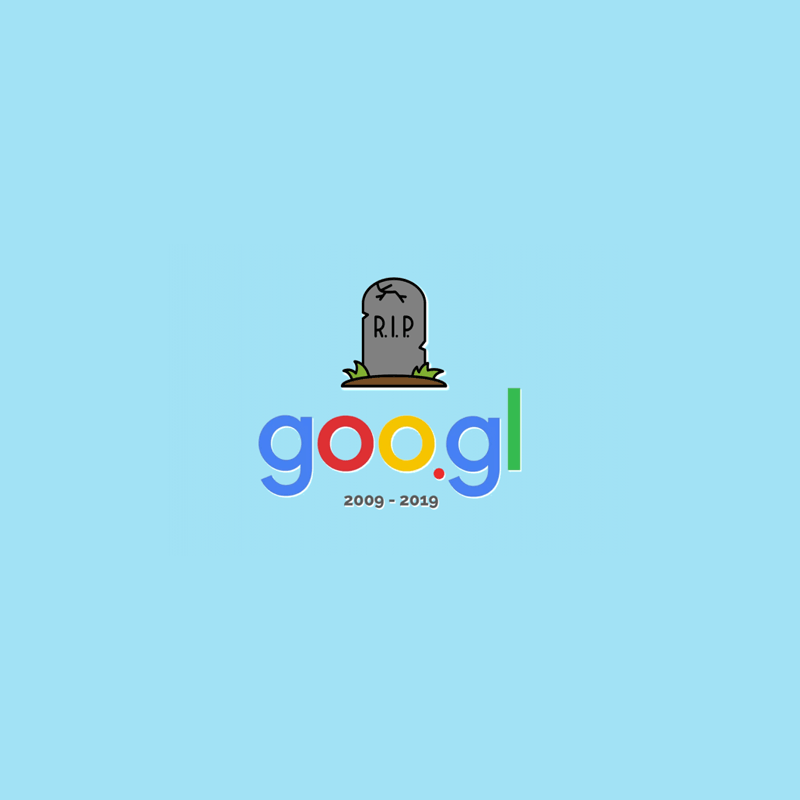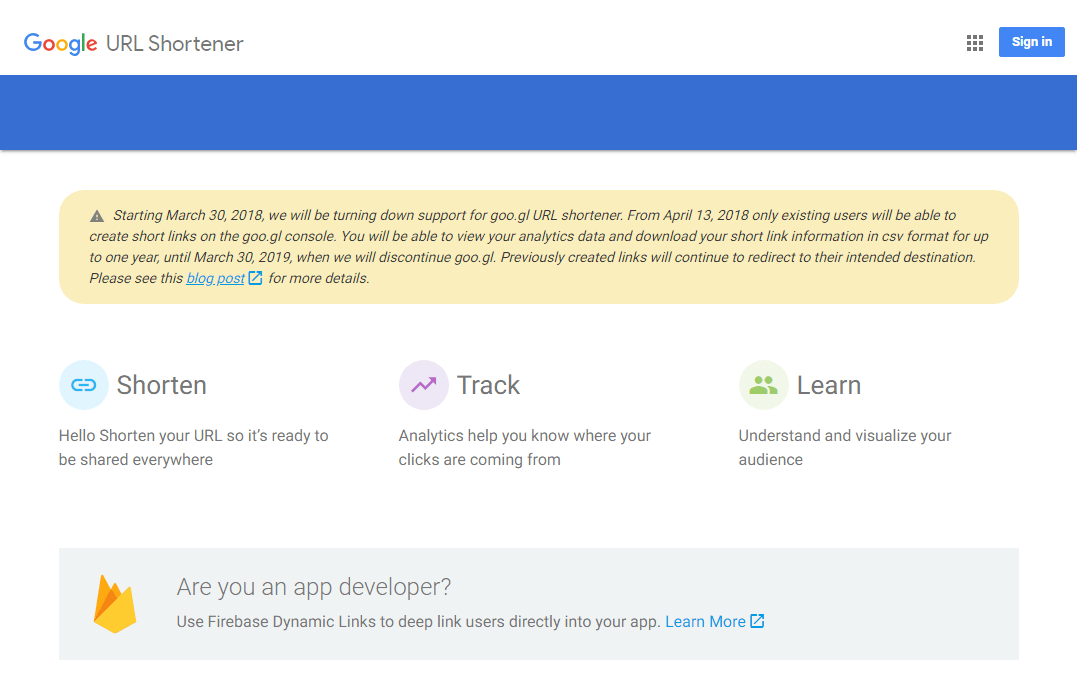
The Google URL Shortener (goo.gl) which was launched in December 2009, was originally intended to be used with Google Toolbar and Feedburner.
However, the need for for Google for having its own own link shorteners has largely gone away. starting when the company said that it is turning down support for goo.gl URL shortener, starting March 30, 2018.
"From April 13, 2018 only existing users will be able to create short links on the goo.gl console," said Google. "You will be able to view your analytics data and download your short link information in csv format for up to one year, until March 30, 2019, when we will discontinue goo.gl."
Links that have already been created will continue to function, but their statistics won’t be visible anymore, and users won’t be able to create new links either.
URL shorteners are considered the hero of social media marketing.
Many internet and social media marketers often put more effort than needed when creating a compelling content. Some people forget how they should use URL shorteners to their advantage. The little string of characters are more than they seem to be.
URL shortening services experienced a massive rise in interest when Twitter came to existence. On the social media where every character counts, URL shorteners reduce long URLs to tiny forms.
These shortened URLs offer better flexibility. With less characters to make a link, users can essentially make the link to their web content easier to remember and less prone to be misspelled. It also allows users for analytics, easier link management, like for example redirecting expired URLs much easier.
While URL shorteners have been around for longer that that, but since Twitter, URL shorteners became popular mostly because they have a special role in marketing.

Google in shutting down goo.gl was first announced by Firebase Software Engineer Michael Hermanto.
Firebase has what it calls Firebase Dynamic Links (FDL). They are smart URLs that allow users to send existing and potential users to any location within an iOS, Android or web app.
They are free at any scale, that can also survive the app install process, "so even new users see the content they're looking for when they open the app for the first time."
What this means, link creators can seamlessly transition users from their website to the equivalent content within their mobile website or app. Here, new users can pick up where they left off on one platform "without missing a beat."
With Google shutting down goo.gl, as a replacement, the company recommends that users switch to FDL, which offers much more functionality.
Among other alternatives, "If you are looking to create new short links, we recommend you check out popular services like Bitly and Ow.ly," said Hermanto.